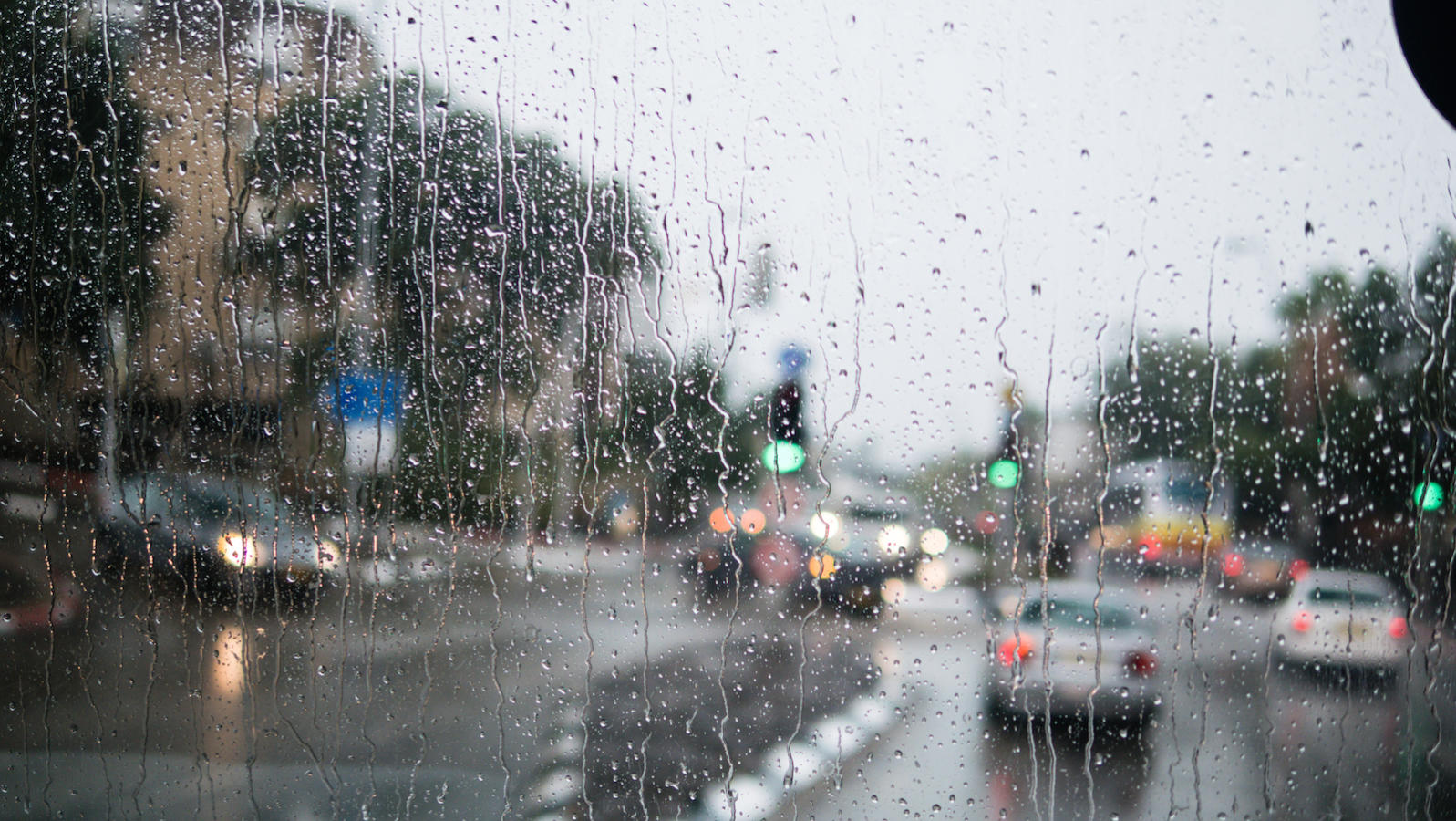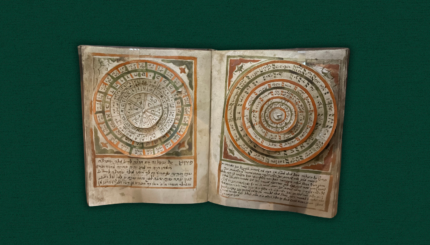A prayer for rain, comprising several paragraphs, is recited by Sephardic Jews on Shemini Atzeret. Some recite this section after lema’an shemo be’ahavah in the Shaliach Tzibbur’s [service leader’s] repetition of the Amidah [standing prayer], while others recite it prior to the recitation of Musaf [the additional service], immediately before the Torah scrolls are returned to the ark.
Shifat revivim (“O Lord, pour down copious showers from Thy heavens”), ascribed to Solomon ibn Gabirol, is the first prayer said. The author’s first name, Shelomoh, is signed in the form of an acrostic at the beginning of the first lines in the poem and is followed by the wish HaZaK (“Be strong!”).
When Tikkun Hageshem is said prior to Musaf, the rabbi and hazzan [cantor]stand next to the scrolls of the Torah while reciting the prayer. The prayer that follows is Mechaseh shamayim (“O Thou Who coverest the heavens”). Its authorship is unknown. The sentence, “So open, we pray, Thy goodly treasury of rain, to revive all in whom a soul is breathed, as Thou makest the wind to blow and the rain to fall,” is repeated as a refrain five times.
The prayer following is Leshoni vonaneta ckhonaneta and is also said in tikkun ha-tal [the prayer for dew recited in the Spring]. It concludes with the first blessing of the Amidah, magen Avraham [shield of Abraham], when Tikkun Hageshem is said in the repetition of the Musaf Amidah.
With your help, My Jewish Learning can provide endless opportunities for learning, connection and discovery.
The prayer service continues with Yisbe’un yedidckha (“Give to Thy beloved children plentifulness”), which includes the poem Ayl chai yiftach otzrot shamayim (“God of life, open Thy heavenly treasures”). Written in an alphabetical acrostic form in which biblical phrases are used, the phrase “May the wind blow and the rain flow” appears as a refrain.
The text in the London, Amsterdam, and Spanish-Portuguese Mahzorim [holiday prayerbooks] omits the stanzas beginning with the letters vav (Vetazil mitral) and zayin (Zekhor rahamecha). It seems, however, that these two stanzas did appear in older prayer books, as each stanza makes reference to one of the biblical heroes in whose merit we ask for rain, and it would be unthinkable that the poet left out Aaron and David, as intimated in these two stanzas. In the Syrian tradition the eight stanzas, honoring the seven Ushpizin plus Elisha and Melech ha-mashi’ach [the king messiah], are assigned to different worshipers to recite.
Following this prayer is the acrostic poem Begishmay orah (“Grant to the earth sunlight and blessing even as rain”). The poem, introduced with “Our God, God of our fathers,” has an acrostic only up to and including the letter kaf. The congregation answers Amen after each of the phrases ending with the word adama [earth, land].
The same prayer is recited in Tikkun Hatal, except that Begishmay (“rain”) is charged to Betalelav (“dew”). Finally, Ana horidaym le’orah is said, ending with mashiv haru’ah umorid hageshem liveracha in the Oriental-Syrian tradition. In other versions (Spanish and Portuguese) the paragraph begins with Kemo sha’atah hu and concludes with the word chalkalah. The latter is said in the repetition of the Amidah, and the Shali’ach Tzibbur continues with Mechalkayl chayyim.
Excerpted from The Encyclopedia of Jewish Prayer. Reprinted with the permission of the publisher. Copyright 1996 Jason Aronson, Inc.
chai
Pronounced: khEYE, Origin: Hebrew, life, composed of the Hebrew letters khet and yud (whose numerical values add up to 18). A "chai" pendant features these letters, and is a common Jewish symbol, along with the Star of David and the hamsa.
Torah
Pronunced: TORE-uh, Origin: Hebrew, the Five Books of Moses.



